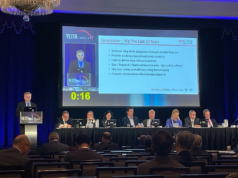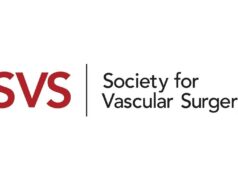 The inaugural cohort of the Society for Vascular Surgery (SVS) Leadership Development Program had to show some resilience early. Not long after the initiative’s maiden run, COVID-19 struck, and a program meant to take place in person went digital.
The inaugural cohort of the Society for Vascular Surgery (SVS) Leadership Development Program had to show some resilience early. Not long after the initiative’s maiden run, COVID-19 struck, and a program meant to take place in person went digital.
For the group of 25 vascular surgeon-leaders who took part, the pandemic—and the switch— afforded impromptu leadership lessons. Program faculty member Vikram Kashyap, MD, chief in the division of vascular surgery and endovascular therapy at University Hospitals Cleveland Medical Center in Cleveland, explained how the Leadership Development Program had grown out of a stated need for educational leadership and, specifically, an SVS-branded course relevant to practicing vascular surgeons.
“Overall, it has been a hit,” he said. “Clearly, the challenges with COVID changed what we envisioned with the program, which included in-person meetings in Chicago, a challenge project, and recognition at the VAM [Vascular Annual Meeting]. It pivoted—just like the VAM—to a virtual-only program that went on throughout 2020.” Fatemeh Malekpour, MD, a University of Texas (UT) Southwestern, Dallas, assistant professor of vascular and endovascular surgery, was one of those first cohort members navigating the unintended digital structure.
“None of us knew in the second half of the program that the world would be upside down; COVID changed the agenda,” said Malekpour, whose own leadership credentials include becoming the first-ever female vascular surgeon in her home country of Iran before arriving in the U.S. “The Chicago in-person workshop was canceled, and all lectures were stopped.”
With the next crop due to participate in the interactive program from January to May with self-study and monthly online education, the hope remains it culminate in a recognition event in June at VAM.
Still, Malekpour expounded the virtues of the digitized version, saying the re-arranged program and agenda led to useful leadership strategizing among participants. This unique aspect helped connect her with a diverse group of vascular surgeons as well as the experiences and problems they encounter at their institutions, she explained. “The course is diverse in participants and organizers. It switches to small practice groups in the second part of each session. These smaller groups get to know each other more, and there is time for everyone to share their points of view, ask other people’s opinion and comment on newly discussed strategies.”
Nicolas Mouawad, MD, chief of vascular and endovascular surgery in the McLaren Health System-Bay Region in Bay City, Michigan, was another member of the last cohort. “[The program] provided an in-depth and engaging forum to learn from leaders in the field and from one another, understanding and discussing challenges and offering practical solutions,” he said.
Melissa Kirkwood, MD, chief in the division of vascular and endovascular surgery at UT Southwestern Medical Center in Dallas, another faculty member, explained how they had dropped the capstone element of the program amid the pandemic, but then refocused on COVID-19 as a leadership crisis. “In the upcoming course, we’re still hoping to have a live event, but we’ve mapped out how to have these webinars.”
Malekpour touched on how the program and the pandemic interacted. “If nothing, it made me realize how many of us deal with similar situations,” she added. “It was sometimes like a support group during the COVID crisis.”
Mouawad described how he melded the program elements around day-to-day practice. “The course is very manageable with our busy clinical practices,” he said. “The information was relevant and impactful, learning not only how to lead teams of people but also how to lead yourself. Personal reflections and assessment was key, and the course allowed for this introspection and 360 evaluations.”
In a virtual environment, Kashyap observed, some of the leadership skills and assessments can take a little time to sink in. He anticipated members of the first cohort returning to act as mentors during the program undertaken by cohort two this year. “Leadership is a lifelong journey,” he added. “We cannot do this enough. We really need these types of programs at multiple levels for trainees, tenured faculty, mid-level faculty. In my own personal experience, I learn so much each time I take a course, read a book, or, as a faculty, I learn so much just from participants about their challenges. That provides insight for me about how to navigate things better.”
Looking ahead, Kirkwood looks forward to a full-fledged program slate re-entering the fray: “Hopefully, by cohort three, we’ll be back to a more live, in-person course where we will have a full capstone project people will work through on their own.”












